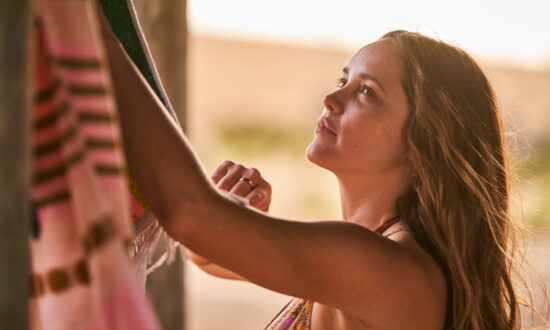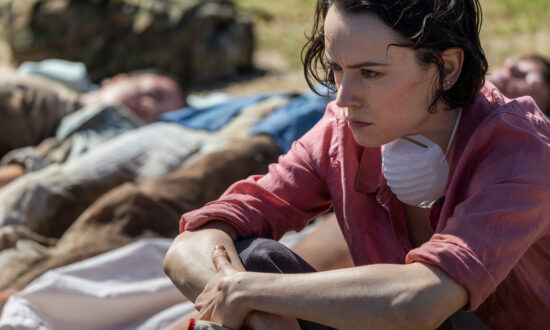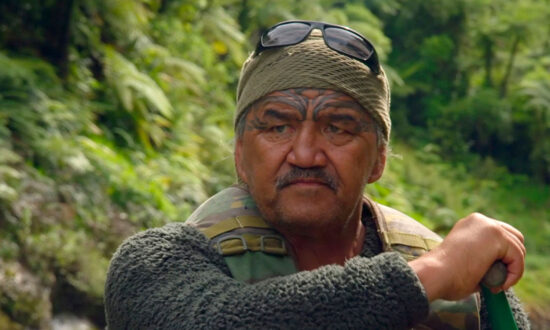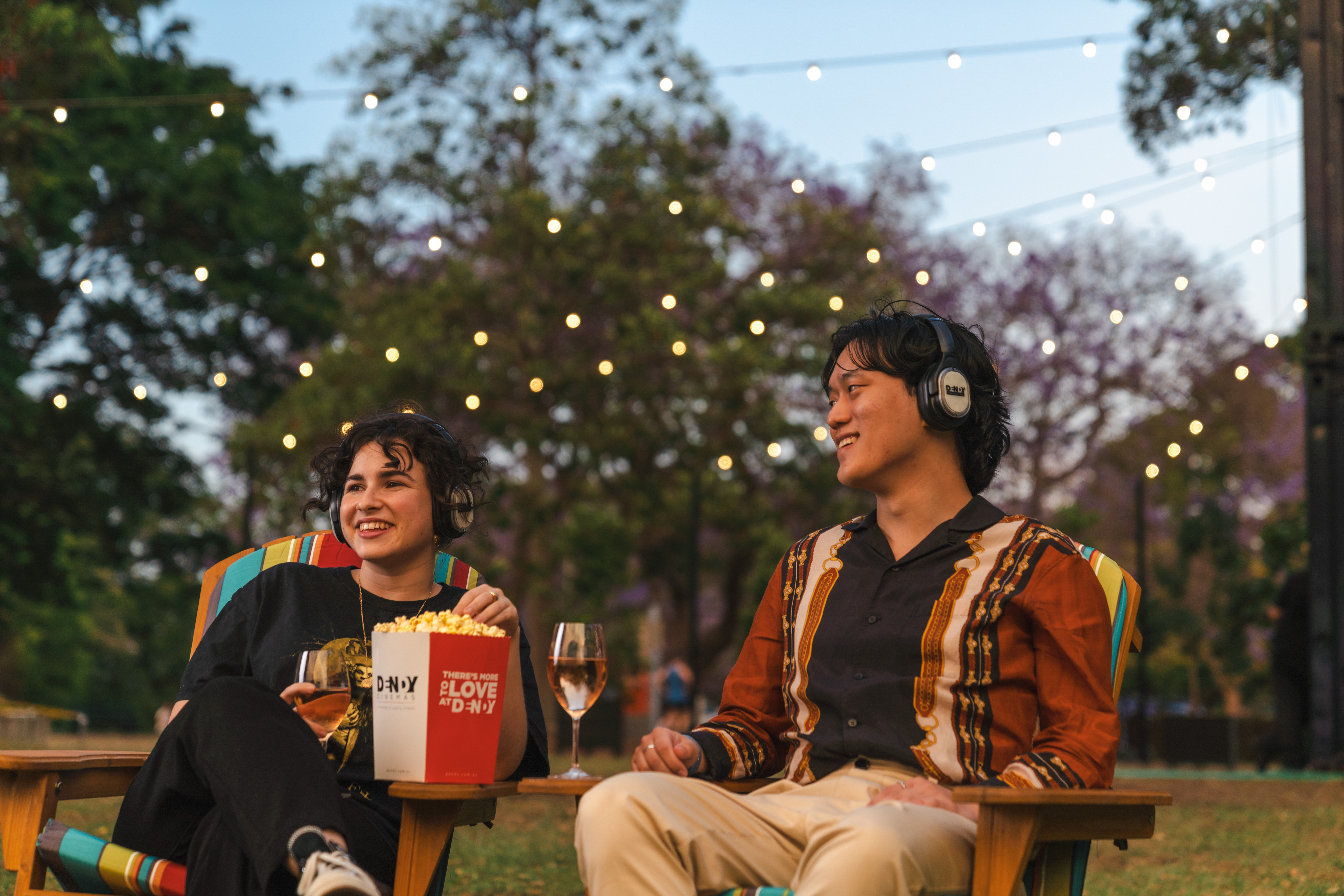2023 began as a promisingly normal year for the screen industry, with COVID consigned to background noise. Then Hollywood went on a strike.
In mid-July, the cast of Oppenheimer was photographed on the red carpet at a cinema in London’s Leicester Square but left when news of the strike came through. Actors Cillian Murphy, Florence Pugh, Matt Damon and Emily Blunt walked out, as writers and actors fought hard for guarantees not to be replaced by AI, or at least to be paid if their AI image was used.
Five months and $5 billion in lost revenue later, normality is returning, but the action has resulted in the delay of big releases like Denis Villeneuve’s Dune: Part Two (Timothée Chalamet, Florence Pugh, Zendaya and Austin Butler) and Yorgos Lanthimos’ reincarnation feminist folly Poor Things (Emma Stone). There is little point in a Dune launch without Chalamet and Zendaya.
Production everywhere was hit. Some unfinished projects collapsed while blockbuster television renewals – including The Last of Us Part II and season three of The White Lotus – have lost almost a year. The Emmys, which should crown Adelaide’s Sarah Snook as Best Actress for her portrayal of Shiv in the final series of Succession, were rescheduled for January 16.
Early 2023 saw Irish actor Paul Mescal give a moving, contained performance in the small, sad and lovely independent release Aftersun, the first of three films he was in this year (the others being Foe and All of Us Strangers). Playing a troubled, amicably divorced dad who takes his daughter on holiday to a cheap Turkish resort, Mescal captured the character’s all-consuming hopelessness which he tries his best to hide. The ring of truth came from writer and director Charlotte Wells, whose relationship with her own father receded into memory.
On an even smaller note, there was EO (EeAw), Jerzy Skolimowski’s Oscar-nominated road trip by a grey donkey who finds love and cruelty after escaping from a circus in Poland. Skolimowski rejected sentiment and filmed scenes of great majesty, art and terror, often from the donkey’s point of view. Some animal lovers found it too harrowing but it was an act of boldness from a director in his mid-80s unafraid to hold up a mirror to how society treats animals.
Meanwhile, the big start-of-the-year blockbuster, Avatar: The Way of Water, came and went in a sea of luminescence in which the blue Na’vi family, headed by Sully (Australia’s Sam Worthington), seeks refuge with their aquatic cousins, the Metkayina. James Cameron’s creation was all colour, movement and CGI – pleasurable and easily forgotten but with plenty more to come, although Avatar 3 will not surface until December 2025.
And then came Barbie. Diehard fans of the doll dressed in pink to sit in the dark while viewers like me were curious to know where an edgy feminist like US director Greta Gerwig would take the politically incorrect plaything. The result was a saturated pink riot in which boyfriend Ken (Ryan Gosling) stole the show as the dumb blonde who discovered the patriarchy and thought, silly boy, he could win. Margot Robbie was born to play Stereotypical Barbie and the film’s candy-coloured vibe and good humour was easy to take.
The second half of 2023 felt the weight of the strike, which gave independent releases a chance to shine, while the curated festivals always contain treasures. One of the best was the harrowing Godland, the centrepiece of the Scandinavian Film Festival which tracked a malevolent priest’s downfall on a journey from Denmark to Iceland to spread God’s word.
Past Lives, my most-adored film of the year, was a warm and witty look by first-time director Celine Song at the deep connections between people whose lives are on different paths. Actor Greta Lee (The Morning Show), the American daughter of Korean immigrants, beautifully captured the way her character, Nora, still had soulful roots in Korean culture while living happily as a modern, married New Yorker.
Theatre Camp (now on Disney+) nailed the obsessions and rituals of talented kids at acting camp in a loving satire co-written by the talented Molly Gordon, who also starred in season two of the lauded TV series The Bear (Disney+). In the latter, Gordon played the doctor, Claire, who falls for Carmy Berzatto (Jeremy Allen White), the prodigal chef who returns to Chicago to run his late brother’s beef joint.
Instead of trying to outdo the frenetic tension that drove season one, the second season of The Bear relaxed into an often gentle, ruminative exploration of characters. Exclude from that the Christmas episode, Fishes, in which Carmy’s brother Mike (Jon Bernthal) is still alive and their mother (Jamie Lee Curtis) drunkenly unravels in front of her traumatised children. It was provocative television and a third season has just been commissioned.
The Adelaide Film Festival pulled off some late big-name inclusions, including Poor Things and the flawed but fabulous Saltburn, starring Jacob Elordi and Rosamund Pike, and directed by former actor Emerald Fennell. Among the best of the AFF was the opening night selection, The Royal Hotel, shot on location in South Australia’s mid-north. Starring Julia Garner (Ruthie from Ozark), director Kitty Green trusted her audience with a high-wire flirtation between feral Aussie larrikinism and full-on horror that provoked real questions about what barmaids endure.
The AFF, which closed last year with Adelaide’s Philippou brothers’ horror hit Talk to Me, this year featured another horror gem, Late Night with the Devil. Made by the Australian Cairnes brothers who directed 100 Bloody Acres, Late Night with the Devil stars US actor David Dastmalchian as the cheesy host of a late-night variety show who hosts a séance in the name of ratings, and unlocks the gates of hell. It is clever and funny and has been picked up for cinema release in the US before streaming on Shudder.
Bingers this year were united in mourning, along with the chats about capacious bags and quiet luxury, as the final episode of ratings juggernaut Succession (Binge, Foxtel) came and went. By the final season the swearing was in overdrive and the bickering getting tiresome but in episode four a major development hauled us all back in. It was trainwreck television with no character you could admire or even like, but it was oh so very watchable.
The battle for control of the Waystar empire, waged at one six-star luxury resort after another, gave off an aura of being intelligent and worthwhile when really it was a smart melodrama about self-sabotage and sibling blood sports. It made Sarah Snook’s Shiv a household name, while Jeremy Strong, who played her brother Kendall, became known for treating every scene like life and death. All of the Roys were terrified of their dad, Logan Roy (Brian Cox) while he could not name a successor because he despised the lot of them. Perfect.

Get InReview in your inbox – free each Saturday. Local arts and culture – covered.
Thanks for signing up to the InReview newsletter.
Slow Horses season three (Apple TV+) will be the Christmas gift that goes on giving because it lends itself to a season one and two rewatch. Gary Oldman, a chameleon UK actor who started out playing Sid Vicious and graduated to Winston Churchill via Sirius Black in Harry Potter and the Prisoner of Azkaban, plays the alcoholic and flatulent Jackson Lamb who runs the team at Slough House, a bureaucratic dumping ground for failed spies. With Kristin Scott-Thomas as MI5’s second-in-command, Diana Taverner (or Lady Di, as Lamb likes to call her), it is consummate British TV based on the novels by Mick Herron. Such a well-rounded series is hard to come by and it’s not over yet. Apple commissioned seasons three and four before season two even went to air so there is at least one more to come.
Revisit all InReview’s 2023 film reviews here.
Support local arts journalism
Your support will help us continue the important work of InReview in publishing free professional journalism that celebrates, interrogates and amplifies arts and culture in South Australia.
Donate Here




